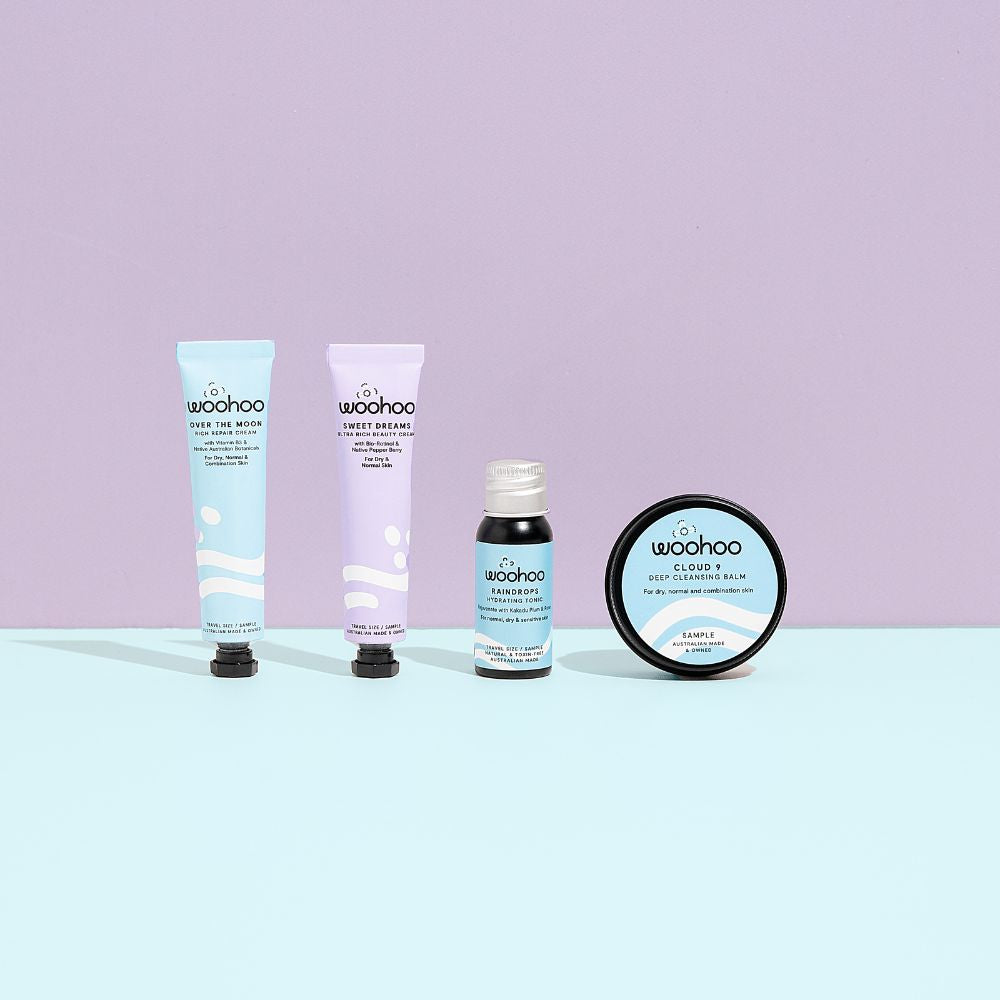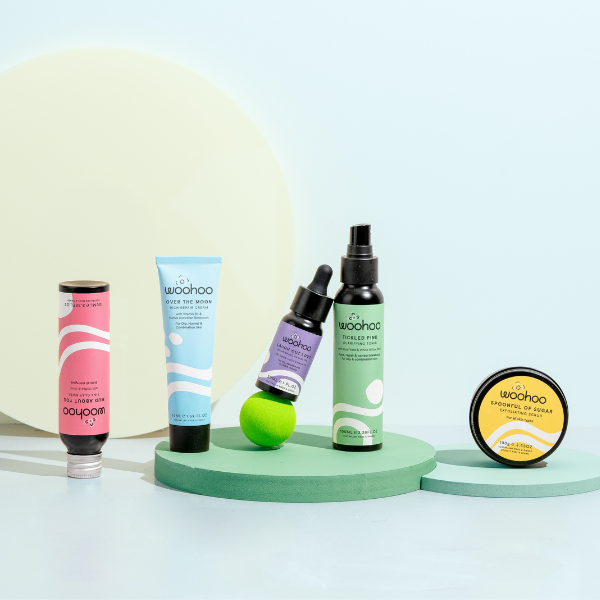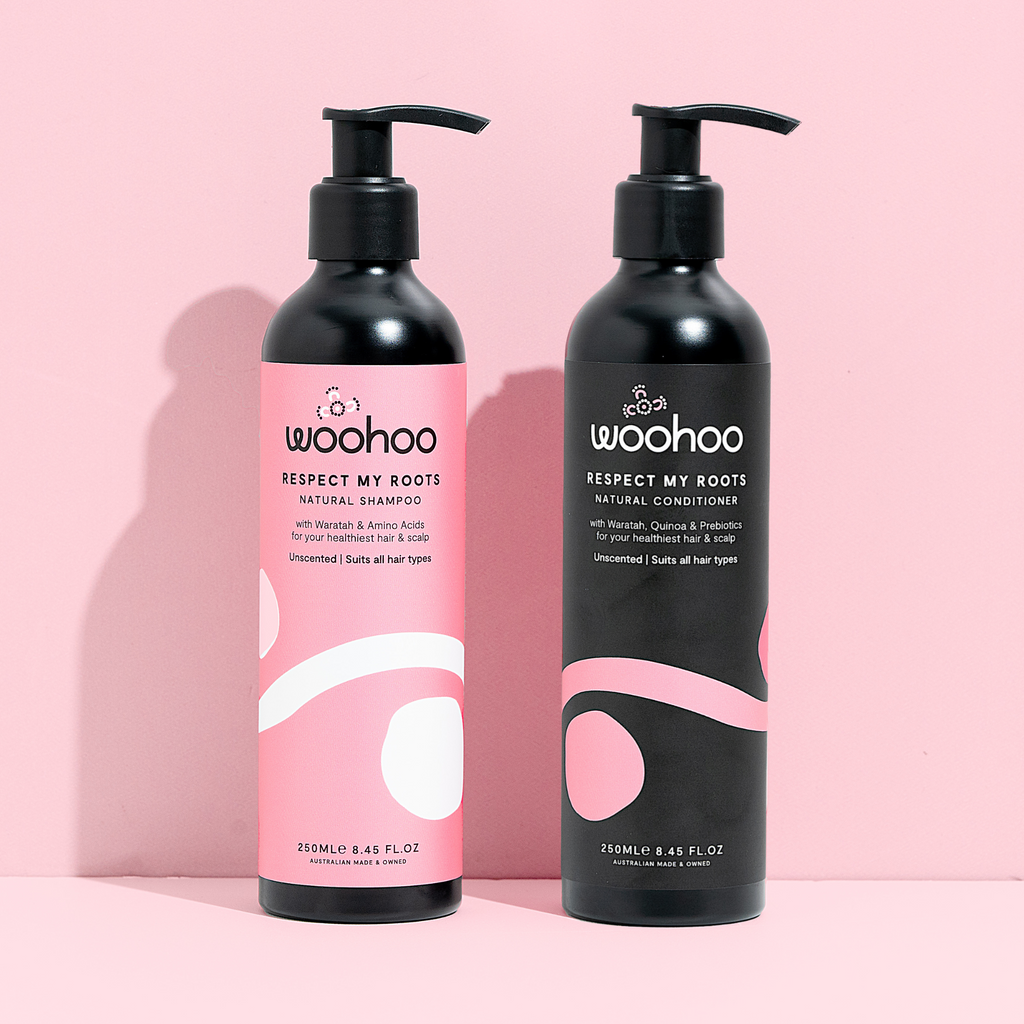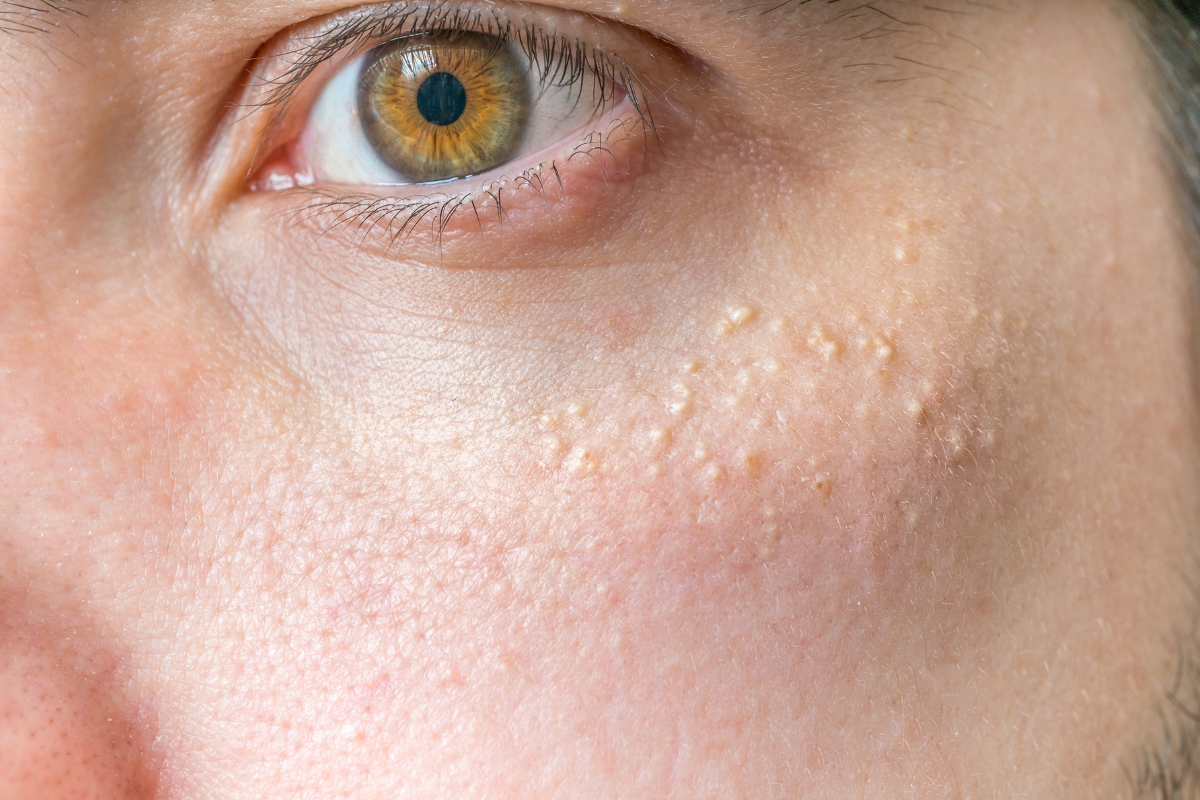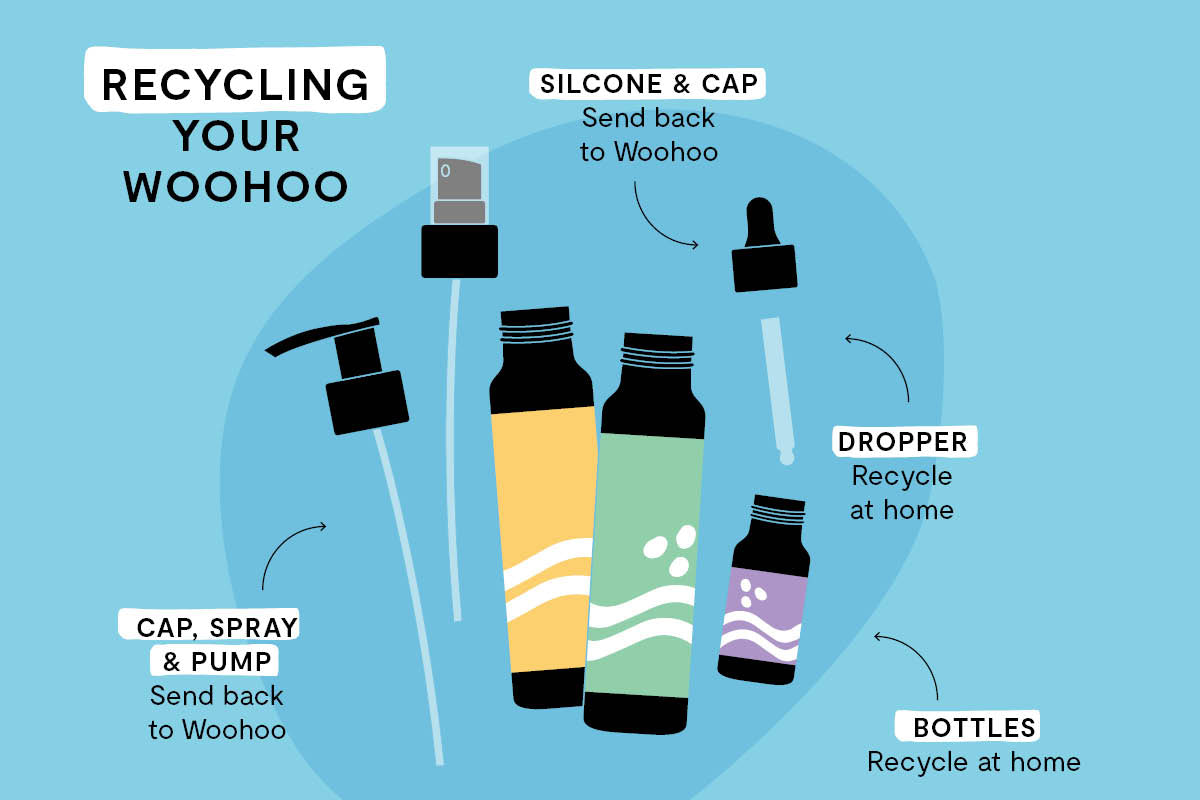
Ahhhhh, hair loss.
Have you been there too? You step into the shower and realise that you've shed enough strands to create a wig for your pet dog.
And don't even get us started on how quickly your carpet can turn into a shaggy rug if you don't vacuum every other day.
But the truth is, losing some hair every day is totally normal.
On average, we lose about 80-100 strands of hair each day.
But if you start noticing that you're shedding significantly more than that or your hair isn't growing back, well, that's when things start to get a little...hairy (sorry, we couldn't resist!).
Here's the thing - hair loss can be caused by so many different things that it can be tough to figure out what's causing your locks to take a hike.
Yes, genetics can play a part, but there’s often much more going on.
So, if you're experiencing hair loss that seems out of the ordinary, keep reading to see if there's an underlying issue that needs addressing and what you can do to regrow your mane.
Here’s how the hair growth cycle works
Did you know that your luscious locks go through not one, not two, but THREE different stages of life cycle? Yep, it's science-y but super cool.
Anagen (growth)– First up is the active growing phase, where your hair is getting longer and thicker. Yippee! The cells in the lower part of your hair follicle (the opening in your skin that your hair grows out of) rapidly divide, and then once new hair has formed, hair is pushed out of your follicle and makes your hair shafts longer. Around 80% to 90% of your hair follicles are in the anagen stage at any given time. It can last anywhere from 2 to 7 years - that's a long time to be growing some serious strands!
Catagen (resting) – This is the short transitional phase of your hair growth cycle. The lower portion of your hair follicle regresses and the hair stops growing. Around 5% of all hairs are in the catagen stage at any given time.
Telogen (shedding) – And then we move into the shedding phase. Telogen lasts for about 3 months, and during this time, your old hair inside the follicle is getting pushed up towards the surface of your skin. This is when your old hair sheds naturally, making way for a brand new anagen hair to emerge.
It's a continuous cycle that keeps your hair looking fab and feeling its best.
Unfortunately, external and internal factors may trip up your hair growth cycle at different stages, causing your mane to grow more slowly or not at all.
Here are a few common types of hair loss
Androgenetic alopecia (AGA): Also known as female- or male- pattern baldness, AGA is a type of hair loss that can be triggered by a dramatic bodily stressor or life event. This can spike male hormones (known as androgens), specifically testosterone, androstenedione and dihydrotestosterone (DHT). Both men’s and women’s bodies contain all three of these hormones in some amount, and their imbalance can contribute to hair loss in both sexes. In men, AGA tends to start at the front of the head, creating a receding hairline that eventually turns into an M-shaped hair recession. It's like your hair is doing the YMCA dance but only knows the letter ‘M’! In some men, this condition can be so severe that they go completely bald (think: old mate, Bruce Willis). In women, the hair appears thin and brittle rather than balding, with a widening part and a reduction in overall volume, but rarely leads to complete baldness.
Alopecia areata (AA): This autoimmune condition occurs when the immune system mistakenly attacks the hair follicles. In scarring forms of alopecia, there might be permanent damage to the follicle that will prevent hair from regrowing. Hair loss may take place on the scalp, randomly, or all over the body. You might notice small, round bald patches on your head where the scalp becomes exposed. A mild case of AA starts with one to two coin-size hairless patches and in many instances, it stops after that. Sometimes, the hair will grow back, however the condition can be unpredictable, and the cycle of hair loss and regrowth can repeat itself. In its extreme form, AA can turn into something called ‘alopecia universalis’, which causes you to lose all body hair. This includes eyebrows, eyelashes, arms, legs, underarms, pubic, and chest and back hair for men.
Telogen effluvium (TE): This temporary form of hair loss happens when fewer follicles enter the growth phase with more follicles in the resting phase. The slower rate of new hair growth results in excessive shedding of hair from all parts of the scalp. It’s one of the most common causes of rapid hair loss, and usually occurs after a stressor or sudden change to your body. You may lose up to 300 strands of hair per day! Acute TE can last fewer than six months, whereas chronic TE lasts longer than six months. The good news is that this is often a temporary condition and the hair loss will stop once the underlying cause is resolved.
Anagen effluvium: Different from TE, anagen effluvium is a type of non-scarring alopecia. It happens during the growth phase of your hair cycle where damage to the hair matrix and/or hair bulb severely impacts hair shaft production, which leads to hair breakage or complete loss of the shaft. People experiencing AE might lose all of their hair over the course of a few weeks. However, the follicle isn’t permanently damaged, and normal hair regrowth is more likely, depending on the cause. Damage to the follicle associated with anagen effluvium is most often caused by a toxic agent or inflammation (such as chemotherapy).
On that note, let’s get to the root cause of your hair loss.
8 common hair loss reasons
1. Hormonal imbalances
We all know that when our hormones are out of whack, it can lead to a whole host of annoying issues like adult acne and weight gain. But did you know that it can also affect your precious locks?
Female hormones (oestrogens) are like your hair's best friend - they help keep your strands in their growth phase for as long as possible. But like we’ve mentioned above, male hormones (androgens) are not so friendly to your locks, and can shorten the hair growth cycle.
Other things that can trigger dramatic changes in hormone levels — like autoimmune diseases, pregnancy, childbirth, menopause, and hypothyroidism — may also affect the hair growth cycle.
Which is why it pays to keep those hard-working hormones in check!
2. Severe stress
Stress is no joke - it can do some pretty wild things to our bodies. And one of those things is making our hair shed faster than a golden retriever in summer.
When we're under a ton of stress, our body goes into overdrive and produces a hormone called cortisol. And while cortisol is great for helping us survive a zombie apocalypse, it's not so great for our luscious locks, as it can disrupt the balance of hormones in the body.
Specifically, cortisol can increase the production of - you guessed it - those pesky androgens, which makes the hair follicles shrink and shed, leading to thinner, weaker strands. Plus, all that stress can lead to some pretty gnarly scalp conditions, like psoriasis and seborrheic dermatitis.
So if you’re super stressed, it may be time to take a chill pill. More on that below.
3. Anemia
Iron is a crucial mineral that your body needs to produce hemoglobin - the protein that carries oxygen in your blood. And without enough iron, your body can't produce enough hemoglobin, which leads to anemia.
You see, hemoglobin delivers oxygen to the different parts of your body, and without enough oxygen the hair follicles in your scalp can become weak and brittle, leading to hair that's more fragile than a Fabergé egg. Plus, anemia can also cause telogen effluvium, which as we now know, contributes to sudden hair shedding.
But don't worry, there's good news too - if you catch anemia early enough, you can usually reverse the hair loss with supplements and a diet rich in iron.
4. Nutritional deficiencies
In some situations, hair loss can happen because of nutritional deficiencies.
Even though hair fibres are made of dead cells, the hair follicles that give rise to hair fibres are very much alive and require proper nutrition to maintain a full head of healthy-looking tresses.
Low levels of iron, vitamin D, vitamin B12, biotin and zinc have all been linked to excessive shedding and hair loss. In most cases, dietary supplements can easily correct vitamin deficiencies.
However, if in doubt, it's best to speak to your medical professional for advice regarding nutritional deficiencies, as they may recommend a blood test to confirm the correct treatment.
5. Dramatic weight loss
Did you know a steep drop on the scales can impact your locks?
Yup, 6-12 weeks after dramatic weight loss, whether it be intentional or unintentional, hair commonly comes out in excess.
Fluctuation in weight can cause physical stress, which signals the hair follicles to move into an inactive stage.
For proper functioning of the human body, it’s important that our body receives the necessary nutrients and calories for ideal functioning. Lack of optimum calorie intake leads to deficiencies in the body system which can lead to hair loss.
6. Menopause
If you're going through or about to enter the menopause, the extreme hormonal changes in your body may also have an effect on your hair.
Menopause typically starts around the late 40s and early 50s. With age, the ovaries begin to decrease the amount of sex hormones that are normally produced. Therefore, menopausal hair loss is directly related to the decreased production of estrogen and progesterone.
That being said, it's important to realise that our hair ages, and as we get older, hair naturally gets finer. It's a totally normal part of the ageing process.
7. Pregnancy
Got a bun in the oven? How fabulous! What’s not-so-fabulous, is the shedding that can often occur during the pregnancy journey.
The first trimester can be a stressful time for your body, as hormones change to accommodate your developing baby. This stress, in turn, can cause the hair on your head to move into the resting phase. This means you could see more hair than usual falling out (hello, telogen effluvium!).
Pregnancy-related hair loss is nothing to be concerned about, though, as it generally resolves within less than six months. You won’t experience permanent hair loss as a result.
8. Traction alopecia
Traction alopecia is hair loss caused by persistent tension and pulling on the hair follicle, which is typically from tight hairstyles such as braids, ponytails or buns. It can also be triggered by overuse of hair extensions... eek!.
The pattern of hair loss mirrors where the hair is under the most strain and this is usually over the hairline and edges.
So, if you love a particular style, make sure you’re giving your hair a break in between.
Natural hair loss treatments
Ok, so now you know what might be triggering your hair loss, let’s dive into how to deal with it.
Watch what you eat
A whole foods, nutrient-rich diet with plenty of organic vegetables, lean protein, healthy fats, nuts, seeds and complex carbohydrates is crucial to supporting healthy hair growth (non-vegans can also include wild-caught fish).
Avoid sugar, trans fatty acids, excessive alcohol, processed foods and too much caffeine if you can - basically, anything that can promote inflammation in the body.
Take supplements
Supplementation can be very helpful in boosting levels of vitamins and minerals available to your follicles, as well as gut health (which is linked to hair health!). While we can’t give you an exact nutritional plan, looking out for the following supplement ingredients may assist: Iron, Vitamin C, Vitamin B12, Vitamin D3, Copper, Zinc, Selenium, Biotin, and the essential amino acids, L-Lysine and L-Methionine. When in doubt, consult a GP, dietician or naturopath.
Hurrah for head massages
Who doesn’t love a glorious scalp massage?! Head massages encourage scalp health as it stimulates blood flow and oxygen to the area, which is crucial for healthy growth. Rosemary is one of the top essential oils when it comes to enhancing hair thickness and growth, as it contains carnosic acid, which is known to heal nerve damage, tissue damage, and improve skin cellular turnover. After mixing about 5 drops of rosemary essential oil with a teaspoon of carrier oil (like jojoba oil or coconut oil), massage evenly into your scalp. Leave it on for 20 minutes, then shampoo the oils out of the hair and scalp. Do this 2-3 times a week for stellar results.
Get smart about styling
When it comes to zhoosing up your mane, the most obvious no-no is excessive heat-styling. Heat-protectants and primers are helpful (or using a shampoo and conditioner with in-built heat protection), but it's important to go off the styling grid every now and then to let your hair rest. Brushing vigorously can also leads to breakage and even hair loss. As for tight ponytails and buns? Give 'em up. In excess, you might start to see hair receding in the front and side. It's also worth avoiding harsh chemical salon treatments if you’re trying to grow your strands back, so steer clear of relaxers and permanent hair dye.
Focus on scalp health
Having healthy hair is dependent on the health of the scalp. Follicles that are full of sebum or blocked by dead skin will have an impact on the quality of hair growth. Which is why it’s essential that the follicle and the scalp, at point of exit, are clean, clear, healthy and maintained. Our 'Respect My Roots' Natural Shampoo and Conditioner include skincare-inspired ingredients that help nurture and balance your scalp, and lay the foundations for healthy growth and less hair loss over time. Winner!
Try to stress less
Learning how to effectively manage your stress levels may help you reduce your risk for further hair loss. Exercising is a great way to eliminate stress, and finding a hobby that brings you joy. We also highly recommend breathwork and meditation, which can help you focus on the present moment, to take your body out of fight/flight mode. And don’t forget to get plenty of sleep. A lack of sleep can spike stress levels like no other, so prioritise your zzz’s whenever you can.
It's crucial to remember that everyone's hair journey is different. There are many factors that can contribute to loss and thinning, so you should always consult a medical professional if you feel there is a more serious issue underpinning your condition.
Just know that you're not alone! There are effective treatments and solutions available to help you regain your confidence and love for your luscious locks.
If you have any questions, want to learn more or simply feel like having a yarn about your stands - please reach out. We’re here to help!
